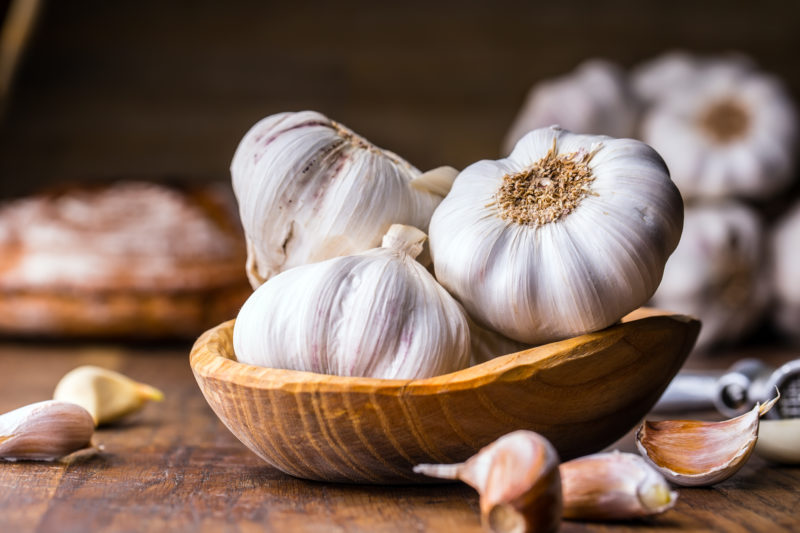Parasites can affect anyone, and are more common in developed countries than you may think. Learn how you can heal from a parasitic infection, naturally.
We may write parasites off as an issue associated with underdeveloped communities, but parasitic infections are much more common than you may think. In fact, the CDC reports that many Americans suffer from parasitic infections each year. (1)
Parasitic infections cause a host of symptoms, some of which are unexpected. They can cause typical digestive distress, but things like fatigue, anemia, and skin issues are extremely common as well.
Read on for a breakdown on parasites, and how you can protect yourself or heal from a parasitic infection.
What Are Parasites?
There are several different types of parasites, three of which cause disease in humans.
Protozoa: Protozoa are considered one-cell organisms, but have the ability to multiply in humans. (2) This type of parasite is not visible to the naked eye.
The infection can be transmitted from one person to another through contaminated food or water, or through a mosquito that may have carried blood from an infected carrier. There are four different groups of protozoa, including sarcodina, mastigophora, ciliophora, and sporozoa.
Helminths: Helminths are much larger than protozoa and can actually be seen without a microscope. They are not able to multiply in the body like protozoa once they mature.
This group of parasitic infection includes flatworms, roundworms, and thorny-headed worms.
Ectoparasites: Ectoparasites refers to things like ticks, fleas, lice, or mites. These are all organisms that burrow into the skin and can transmit disease. (3)
24 Symptoms of a Parasitic Infection to Watch Out For
If you think you may have a parasite, there are many symptoms you will want to be on the lookout for. These symptoms go further than digestive upset, and some of them often go overlooked.
However, if you have more than one of these symptoms and they’re persistent, it may be time to speak with your doctor about a parasitic infection.
1. Constipation: Protozoal parasitic infections are notorious for causing constipation, and are also linked to Chagas disease, a parasitic infection caused by an infected triatomine bug. (4)
2. Diarrhea: One of the most common symptoms of a parasitic infection is frequent trips to the bathroom with watery diarrhea.
3. Rectal or vaginal itchiness: These infections can present themselves with either rectal or vaginal itchiness, and this is especially true with pinworm parasite infections. (5)
4. Feelings of constant hunger: If you have a tapeworm, the worm may be eating the food you are consuming, making you feel abnormally hungry.
5. Constant fatigue: Extreme fatigue, even after getting a good night of sleep, can be linked to a parasitic infection. The giardia parasite is especially known to cause fatigue.
Giardia is an intestinal parasite that can cause chronic fatigue syndrome if the infection is not treated for an extended period of time. (6)
6. Anemia: Worm infections like hookworm and whipworm have been linked to anemia. (7)
7. Eczema: Atopic dermatitis, also called eczema, can be linked to parasites. If you suffer from chronic eczema, consider getting tested for a parasitic infection. (8)
8. Hives: Studies have found that parasitic infections can cause skin issues such as hives. (9)
9. Generally itchy skin: In addition to eczema and hives, parasites can cause a rash that can lead to itchy skin. This is because intestinal parasites can induce allergic responses in the body. (10)
10. Anxiety: Specific parasitic infections such as toxoplasma gondii have been linked to anxiety disorders. (11)
11. Abdominal pain: If the parasite lives in your intestines, it’s not uncommon for the infection to lead to abdominal pain. (12)
12. Muscle and joint pain: Muscle and joint pain can be the result of a parasitic infection and may even cause reactive arthritis. (13)
13. Persistent digestive issues after food poisoning: If you had a bout of food poisoning and your digestive health never got back on track, it may be because you are suffering from a parasitic infection.
14. Prolonged “Travelers Diarrhea”: Diarrhea that lasts well after traveling is often linked to a protozoal or helminth parasite. (14)
15. Reduced absorption of micronutrients: If parasites go untreated, it can lead to nutrient deficiencies. This is from an intestinal parasite consuming all the micronutrients you ingest. (15)
16. Blood in stool: Parasites have the potential to cause intestinal bleeding, which can then lead to blood in the stool. (16) Some parasitic infections have also been linked to causing bloody diarrhea. (17)
17. Poor appetite: Poor appetite can occur in some parasitic infections, particularly ascariasis, a type of roundworm infection. (18)
18. Frequent gas: Frequent gas is often a symptom of intestinal parasites, along with constipation and diarrhea.
19. Weight loss: Parasites like tapeworms can lead to weight loss because the parasite residing in your intestines consumes your food.
20. Coughing or other respiratory symptoms: If you have a parasite living in your lungs, it’s possible that you may suffer from respiratory symptoms. Coughing and shortness of breath are big ones to watch out for. (19)
21. Strange vaginal discharge: A sexually transmitted parasite called trichomonas vaginalis can cause unusual vaginal discharge. It can be yellow or green, and have a fish-like smell.
22. Dehydration: Since many parasitic infections lead to watery diarrhea, it’s easier for you to become dehydrated the more you go to the bathroom.
23. Headache: Parasitic infections, and especially infections like toxoplasmosis, can lead to headaches. (20)
24. Swollen lymph nodes: Swollen lymph nodes are another common symptom of the protozoal parasitic infection toxoplasmosis, as this infection results in flu-like symptoms.
How to Naturally Heal from a Parasite

While being diagnosed with a parasitic infection can be scary, the good news is that there are plenty of natural remedies to help promote healing.
Get Tested And Diagnosed
The first step is to get tested. If you have any reason to think you may have a parasite, speak with your doctor.
Your doctor can check for parasites through stool testing, blood tests, MRI or CAT scans, and even endoscopies or colonoscopies. (21)
Try Herbal Support
If you’ve been diagnosed with a parasitic infection, follow your doctor’s instructions to treat the problem. You can also consult your doctor about supplements known to help fight off a parasite at its source, like these:
Garlic: Allicin, the active component in garlic, is known to help fight off intestinal parasites. (22) Try adding fresh garlic to your diet to help fight off a parasitic infection while boosting your immune system at the same time.
Black walnut: Black walnut holds antiseptic, germicide, laxative, and anti-parasitic properties. When used, black walnut hull may be able to help fight off parasitic infections while also reducing constipation.
Clove: Clove essential oil is a powerful natural treatment option when trying to fight off a parasitic infection. Clove contains eugenol and caryophyllene, both of which can help ward off infection. Studies have found clove to be very effective at warding off worms, fungi, bacteria, scabies, and tuberculosis. (23)
Oregano: Oregano has long been used as a natural antibacterial, but it can also be very helpful in fighting off parasitic infections. (24)
Berberine: Berberine is extracted from many different plants, and is used in Chinese medicine and Ayurveda. It’s commonly used to treat parasites. (25) You can easily find berberine supplements online or in your local health food store.
Propolis: Propolis is helpful in fighting gastrointestinal problems and may ease some of the gastrointestinal distress of a parasitic infection.
Pumpkin seeds: Considered an antiparasitic food, a Chinese study found pumpkin seeds were effective in treating tapeworm infections. (26)
Papaya seeds: A pilot study found the combination of air-dried papaya seeds and honey to be promising in treating parasitic infections. (27)
Probiotics: When you’re taking certain herbs and supplements to try to kill off a parasitic infection, there’s a good chance you may be ridding your body of some of the beneficial bacteria in your gut as well. Use high-quality probiotics to make sure you are giving your gut what it needs as you fight off the infection. You can supplement or consume probiotic-rich foods like sauerkraut, unsweetened coconut yogurt, kimchi, or kombucha.
The Bottom Line
Parasitic infections are the last thing anyone wants to worry about. But they are far more common than you may think, and there are numerous natural treatment options to fight off the parasite and prevent further infections.
Always consult your doctor with your parasite concerns so that you can find the best way to combine medical intervention with natural healing and support.
Read This Next: Is Hospital Food Making Patients Sicker?


